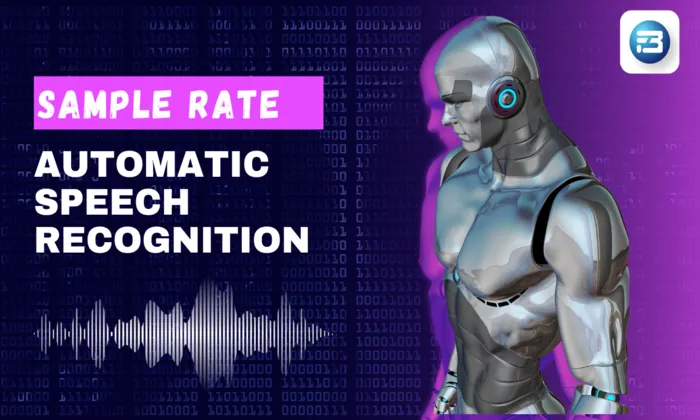Why does my model perform poorly on pediatric or geriatric patient conversations?
NLP
Healthcare
Conversational AI
Understanding why AI models often struggle with pediatric or geriatric patient conversations requires an exploration of several key factors. These age groups present unique communication styles that can challenge AI systems, particularly if the training data does not adequately capture their conversational nuances.
Why Pediatric and Geriatric Communication Styles Matter
- Pediatric Conversations: Pediatric conversations typically involve more than just the child; parents or guardians often participate, adding layers of linguistic and emotional complexity. Children use simpler language, more non-verbal cues, and familiar references. Conversely, geriatric conversations may involve cognitive considerations, varying levels of health literacy, and the emotional gravity of serious health discussions. AI models trained primarily on adult interactions may miss these nuances, resulting in ineffective communication. For instance, a child’s conversation about vaccinations might involve playful reassurances that an AI model trained on adult dialogues might not effectively replicate.
- Geriatric Conversations: Geriatric conversations may include cognitive challenges or varying health literacy. Older adults often need more patience, clear language, and sometimes more frequent repetitions or clarifications. If AI models aren’t trained with these specific communication needs in mind, they might misinterpret the urgency or tone of the conversation.
Contextual Understanding is Key
Both pediatric and geriatric interactions require a deep understanding of context. Children often need reassurance, while elderly patients may require more patience and clarity. An AI model lacking training in these contextual nuances can misinterpret intent, leading to responses that may seem inappropriate or disconnected.
Importance of Age-Specific Data Diversity
- Training Data Gaps: A significant factor in poor model performance is often the lack of diverse training data. If the dataset is predominantly composed of adult conversations, it may not expose the model to the linguistic and emotional patterns used by children or older adults. Having a diverse dataset that includes a range of ages and communication styles is crucial for effective training.
- Diversity in Speaker Representation: The diversity of speakers in training datasets significantly impacts model effectiveness. Variability in accents, speech patterns, and emotional expressions can affect how well the AI understands and responds accurately. Without this diversity, models risk being biased or inaccurate, particularly in sensitive healthcare contexts.
Enhancing Annotation and Quality Assurance
- Role of Annotations: High-quality speech annotation is crucial for capturing not just spoken words, but also the emotional context and intent. For pediatric patients, annotations might highlight playful tones or reassurance cues, while for geriatric patients, they should emphasize clarity and empathy. Inadequately annotated data can cause models to miss critical conversational cues.
- Robust Quality Assurance: A comprehensive quality assurance process ensures training data reflects real-world interaction complexities. This involves not only linguistic accuracy checks but also evaluations by healthcare professionals to verify the appropriateness of language and emotional tone. Without these checks, models might perpetuate misunderstandings, especially in sensitive conversations.
Strategic Approaches for AI Teams
- Balancing Generalization with Specialization: AI teams face the challenge of balancing generalization with specialization. A model trained on a broad spectrum of adult conversations may lack the depth needed for specific populations. Investing in specialized datasets for pediatric and geriatric conversations can significantly enhance model performance, though it requires resources and careful planning. Prioritizing depth over breadth can lead to better performance in critical, nuanced scenarios.
- Ethical Considerations: Ethical considerations are paramount when training AI for healthcare conversations. Ensuring the model respects age-related communication nuances not only improves performance but also aligns with ethical standards in patient interaction. This requires developing datasets that are compliant with privacy regulations and reflect the diverse communication needs of all patient groups.
Lessons from Leading Teams
- Avoiding Common Pitfalls: A common mistake in developing conversational AI for healthcare is underestimating the complexity of pediatric and geriatric interactions. Teams may rely too heavily on generalized training data or overlook the importance of context and emotional nuance. Additionally, neglecting the diverse linguistic and cultural backgrounds of speakers can result in ineffective models in real-world applications.
- Implementing Effective Strategies: Successful teams prioritize gathering diverse, high-quality training data, including a wide variety of pediatric and geriatric conversations. They invest in comprehensive annotation processes that capture the emotional and contextual subtleties of these interactions. By incorporating feedback from healthcare professionals during development, teams can enhance the model’s ability to engage appropriately with these vulnerable populations.
Conclusion
In addressing the challenges of pediatric and geriatric patient conversations, FutureBeeAI offers datasets that capture the diversity and complexity needed for effective AI model training. Our Doctor-Patient Conversation Speech Dataset provides a strong foundation for developing models that understand and respond to diverse communication patterns, ensuring your AI systems are both effective and ethically sound. For healthcare projects requiring domain-specific data, FutureBeeAI can deliver tailored datasets that meet your precise needs.
What Else Do People Ask?
Related AI Articles
Browse Matching Datasets
Acquiring high-quality AI datasets has never been easier!!!
Get in touch with our AI data expert now!








